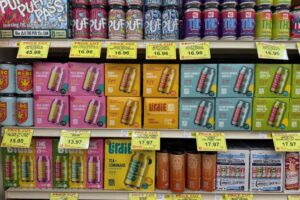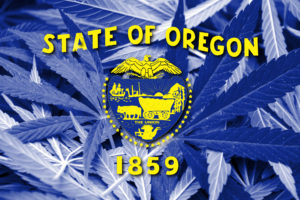
Last week, the Federal Trade Commission (“FTC”) issued warning letters to three unnamed companies that advertised their CBD-infused products as treatments or cure for serious medical conditions.
These warning letters are nothing new. As we have explained before, making medical claims about CBD-infused products is the perfect way of falling under the scrutiny of federal authorities.
What may be surprising to some, however, is that the FTC sent out these letters, not the Food and Drug Administration (“FDA”). The regulatory authority of the FDA and of the FTC overlaps greatly.
Pursuant to the Food, Drug & Cosmetic Act (“FDCA”), the FDA has regulatory authority over labels and labeling and is to ensure that consumer products (foods, dietary supplements, cosmetics, tobacco products and drugs) are not misbranded. Generally, misbranding consists of false and misleading labeling. On the other hand, the FTC is tasked under the Federal Trade Commission Act (“FTC Act”) with regulating “advertising” to protect the public from unfair and deceptive claims in any medium.
The distinction between labeling (including packaging) and advertising is not always clear. Over the years, some courts have expanded the authority of both agencies by interpreting “labeling” to include products sold on the Internet, especially if purchased directly from a website. This expansion of power has blurred the lines between the FDA and FTC’s jurisdiction. In addition, the agencies have increased collaboration in regulating the advertising of food and dietary supplement products, making those jurisdictional lines foggier.
A perfect example of this interagency collaboration is reflected in the March 28 warning letters that the FDA and the FTC sent jointly to three CBD companies: Advanced Spine and Pain, LLC; Nutra Pure LLC; and PotNetwork Holdings, Inc..
The growing symbiotic relationship of these agencies has resulted in heightened regulatory scrutiny of consumer products, including that of CBD-infused products. Of course, with increased scrutiny comes increased financial risks in defending against those enforcement actions. In addition, the public nature of these warning letters naturally opens the door to potential consumer class action claims and securities violations – take the example of Curaleaf, here and here.
Since the beginning of the year, the FDA and the FTC have issued a total of four warning letters to CBD companies, which suggests that the agencies are acknowledging the growth of the CBD industry and that more enforcement actions are sure to come.
Consequently, and given the lack of distinction between labeling and advertising and the overlap of regulatory authority between the FDA and the FTC, CBD stakeholders, particularly manufacturers, distributors and marketers, should:
- not make health claims about the therapeutic value of their products;
- closely monitor both agencies’ enforcement actions (i.e., warning letters) and regulations; and
- develop compliance programs to (i) ensure that their marketing efforts align with federal guidelines and (ii) ensure that their compliance team is familiar with the FDA and the FTC’s regulations to successfully implement these guidelines.
For more information on FDA and FTC’s guidelines and how to mitigate your risk of enforcement action, please contact our team of regulatory attorneys.























